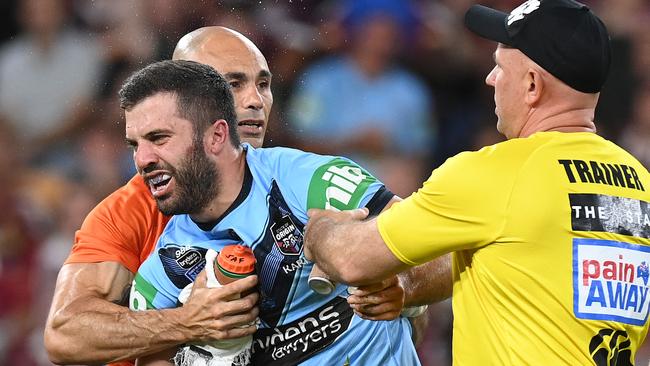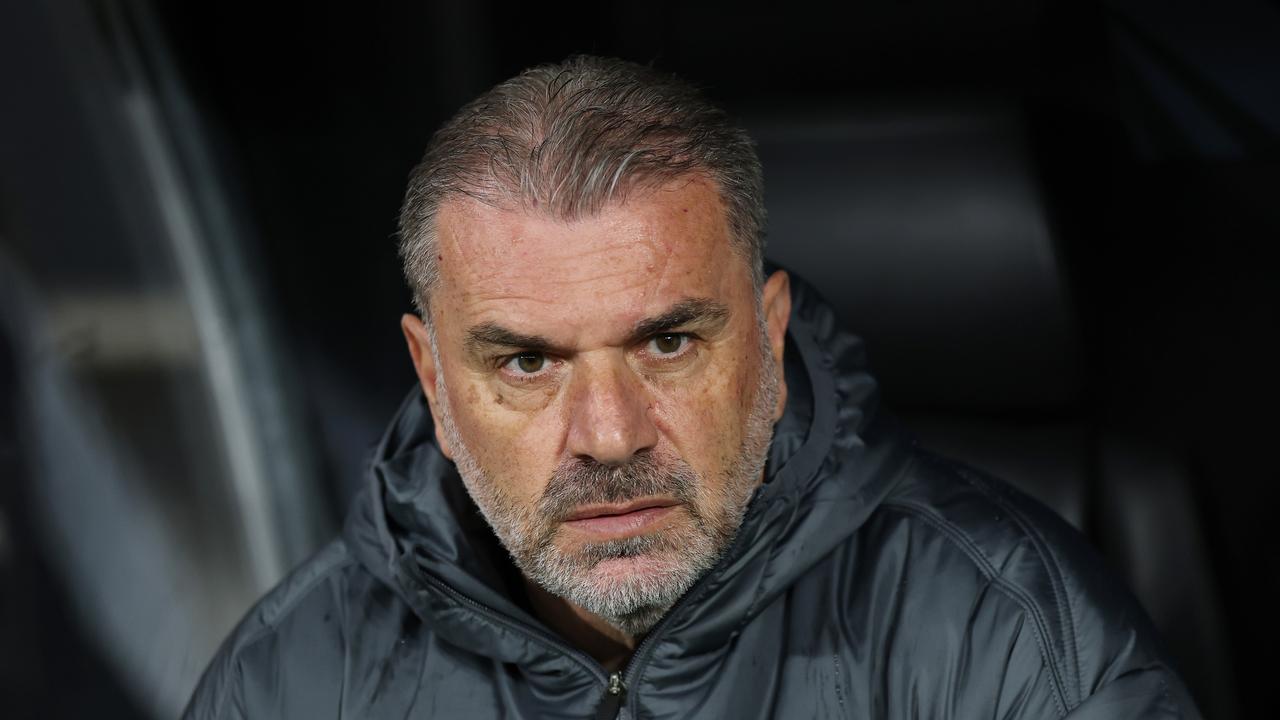Why sport still doesn’t get it on concussion
Despite mounting evidence, there is still the sense that sport doesn’t get it when it comes to concussion.

For sports fans in Australia, rugby league’s State of Origin is an annual highlight. Queensland against NSW in a best-of-three series.
At Suncorp Stadium in Brisbane on Wednesday evening, the 2020 renewal ended with the underdogs Queensland winning the decider 20-14. Fifty-two thousand people packed into the stadium and the atmosphere was a reminder of what we have been missing for the past eight months.
Part of the attraction is the physical intensity. There was an important moment midway through the first half when NSW’s best player, James Tedesco, slipped and slid, head-first, into Queensland prop Josh Papalii’s left knee. Tedesco lost consciousness for a few seconds.
Jai Arrow, the player who was in the act of tackling Tedesco, instinctively pushed his head into the turf, then grabbed him by the left arm and shoulder, lifted him about a foot off the ground before slamming him back down. As he was manhandling Tedesco, Arrow realised something was wrong. Afterwards he was contrite.
“I just want to come out and say at first, I was fired up, and I am honestly not a grub like that,” he said. “I didn’t know he was knocked out. If you watch the footage I go back and put my hand up. In the heat of the moment, a decider at Suncorp, of course I am out there to try to hurt people, but not intentionally when they are in a bad way.”
After regaining consciousness, Tedesco staggered to his feet but he was unsteady. He left the pitch and didn’t return. The Nine Network, which was broadcasting the game in Australia, barely replayed the incident. Arrow’s aggression towards a player who was unconscious wasn’t a good look.
There is also a better understanding about the damage caused by concussion and that it represents the single greatest challenge facing all those sports where high-intensity collisions are prevalent. There were concussions in all three Origin games. And quite a bit of disquiet around the first when Boyd Cordner, the NSW captain, staggered from the field only to return 20 minutes later having passed a head injury assessment.
If ever we needed proof that the protocols are not fit for purpose, this was it. Cordner has suffered multiple concussions this season and, having returned to the pitch, he played for a further 48 minutes. It is hard not to admire his willingness to play on after receiving a head injury and impossible not to see his return to the field as insane.
Remarkably the former Australia star Andrew Johns, now a pundit for Nine, was scathing of those who criticised Cordner’s return. “I wish all those people who have no idea what’s going on behind the scenes would just shut their mouths,” he said.
Last year Johns admitted that he had been having epileptic seizures since 2016. He said his doctors couldn’t be certain of the cause, but they had suggested that concussions suffered during his career may be a factor. Perhaps the greatest of all rugby league players, Wally Lewis, has had part of the left temporal lobe of his brain removed to combat his epilepsy.
Despite mounting evidence, there is still the sense that sport doesn’t get it when it comes to concussion. Both rugby codes hide behind their HIA protocols, insistent that they are enough. Turn the clock forward five or 10 years and those protocols will be very different but, alas, a lot of brains will have been damaged in the meantime.
I spoke last week with a Sydney-based neurologist, Dr Rowena Mobbs, of Macquarie University. She devotes much of her life to helping those with dementia and Alzheimer’s disease. Increasingly, she is being contacted by people who have been involved in boxing and the collision sports, especially rugby union and league and Australian rules football.
“In relation to former sportspeople, the youngest patient I have concern for is 29,” she said. “Many of mine are in their forties, fifties and sixties. Dementia is the bread and butter of my working life. I see patients with that all day, every day, but what struck me about the sportspeople — and I haven’t proven they have CTE (chronic traumatic encephalopathy) — is it feels like a different type of dementia.
“I am left with people who are really impaired, and their wives and partners are all saying the same things. It is tending to be younger players in their fifties who look like they’re in their sixties. They’re starting to get agitated, to wander, not be able to interact socially. Their spouses say it’s like walking on eggshells. They have to know the right time to bring up something they need to arrange, a family occasion or something like that. We’re seeing a lot of socially inappropriate behaviour, with stories of wives kicking their partners under the table and saying ‘behave’ after he has said something out of character.”
Michael Lipman and his wife, Frances, came to Mobbs, wanting to tell what has happened in their lives.
Rugby player Lipman is now 40. He moved to England from Australia in 2001, spent two seasons with Bristol and joined Bath in 2003. During his six years at Bath, he won 10 England caps and was one of those flankers admired for his tackling and indomitable spirit.
Lipman suffered multiple concussions and if he wasn’t knocked out, he played on. This would have endeared him to his teammates.
Eventually, there were too many concussions. After returning to Australia and continuing with Melbourne Rebels for a season, he retired in 2012.
His problems began soon after retirement. Forgetfulness, mood swings, irritability leading to anger over unimportant things, until he and Frances realised his behaviour wasn’t normal. Hence their decision to see Mobbs. After a cognitive test, the couple learnt that he had mild dementia. It is hard to imagine what that news sounds like to a young couple with two young children.
Michael takes responsibility for decisions he made during his career that have surely contributed to the difficulties he faces.
The game he played and those responsible for the workplace in which he plied his trade accept no responsibility.
That’s the bit I don’t get.
The Sunday Times



To join the conversation, please log in. Don't have an account? Register
Join the conversation, you are commenting as Logout